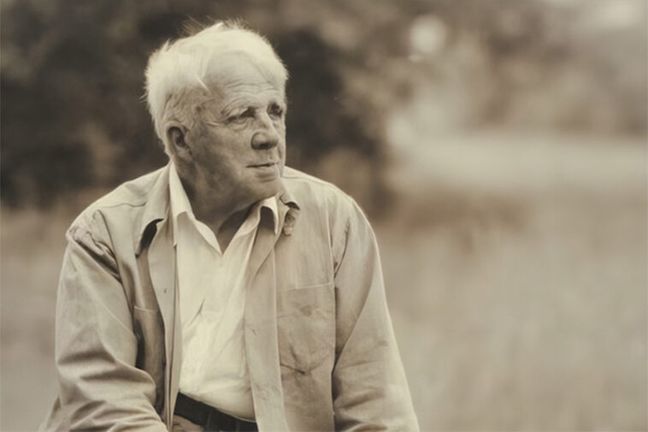A pending case regarding employer obligations for meal and rest breaks in California was recently removed to federal court, where a recent federal decision addressing whether federal regulations regarding meal and rest breaks for commercial drivers preempts California law on the same topic will likely provide a friendlier framework for the employer defendant.
I. The Operating Complaint:
On March 24, 2023, plaintiff Jason Bell, a California resident, on behalf of himself and others similarly situated, filed a Complaint in the Superior Court of California, San Diego County against Shamrock Foods Company. Plaintiff Bell alleged eight causes of action involving statutorily required breaks and pay. Defendant Shamrock Foods is a Phoenix, Arizona based foodservice distributer that transports a variety of food-related brands to restaurants, casinos, retail stores and lodging businesses. Shamrock was founded by the McClelland family in 1922. They operate out of Arizona, California, Colorado, Idaho, Montana and New Mexico. Plaintiff Jason Bell was a Class A commercial driver for Shamrock beginning in May 2022. His duties primarily consisted of making deliveries on behalf of Shamrock to their customers using a Shamrock commercial truck. He was paid $30 an hour. [i]
During a normal work shift, plaintiff Bell’s employment tasks included traveling from drop off location to drop off location delivering refrigerated and dry foods to restaurants and stores on behalf of Shamrock. Plaintiff was required to unload cargo from Shamrock’s truck and move it to the customer’s storage area. Plaintiff claims that during this time of moving cargo, Shamrock would record this time as meal and rest breaks. However, plaintiff alleges that he was not taking breaks, but working to move cargo from the truck to the customer and make deliveries. Furthermore, plaintiff was required to work through his breaks if he had not completed his deliveries. [ii]
Plaintiff claims Shamrock did not obtain a written meal or rest break waiver from him, nor did they compensate him for the times he had to work through his meal and rest breaks. As he was required to work through breaks, he was not compensated for the additional time worked or given overtime. His wage statements did not reflect the extra time he worked. On August 10, 2022, Shamrock terminated plaintiff’s employment.[iii] Plaintiff originally filed this case in California state court. However, Shamrock sought removal to federal court based on diversity jurisdiction and the alleged damages amount. The case is currently assigned to U.S. District Judge Dana M. Sabraw.
II. California’s Meal and Rest Break Laws
The Complaint alleges eight causes of action on behalf of Plaintiff Bell and other Shamrock drivers: failure to provide meal breaks, failure to provide rest breaks, failure to pay all wages, failure to pay overtime, failure to provide accurate wage statement, failure to pay all wages twice per month, failure to pay all wages upon termination and unfair business practices.[iv] Essentially, plaintiffs claim California Labor code § 512(a)-(b) requires that employees must be given a 30-minute meal break within the first 5 hours of working. If an employee’s work period is 10 hours or more, a second meal break must be provided. Plaintiff claims he did not receive his meal breaks because Shamrock company policy required drivers to constantly make deliveries with no time for breaks.
Cal. Labor Code § 512 requires that any employee working five or more hours is entitled to a 30-minute meal period. If an employee works 10 hours, they are entitled to a second 30-minute meal break.[v]
III. Federal Law and Commercial Drivers
California law imposes strict requirements on employers regarding their employees’ meal and rest breaks. This can cause difficulty in industries that require movement or working conditions not suitable for set break times. In 2021, the Ninth Circuit Court of Appeals ruled on the case of International Brotherhood of Teamsters, Local 2785 v. Federal Motor Carrier Safety Administration.[vi] This case specifically addressed the issue of whether the Federal Motor Carrier Safety Administration (FMCSA) had the ability to determine that federal law preempts California’s meal and rest break rules (MBR rules) as it applied to drivers of property carrying commercial motor vehicles who were already subjected to FMCSA’s own break policies. Compared to federal safety regulations, California law allows commercial truck drivers to take more breaks, at greater frequency with less flexibility of when the break occurs.
The purpose of the FMCSA is to issue regulations on commercial motor vehicle safety as it relates to the Motor Carrier Safety Act of 1984. The agency prescribes regulations that contain “minimum safety standards for commercial motor vehicles.”[vii] The Act specifically gives the Secretary the express power to preempt State law. 49 U.S.C. § 31141 states in relevant part, “A State may not enforce a State law or regulation on commercial motor vehicle safety that the Secretary of Transportation decides under this section may not be enforced…..To carry out this duty, ‘[t]he Secretary shall review State laws and regulations on commercial motor vehicle safety.’”
In contrast to California law requiring 30-minute meal breaks and 10-minute rest breaks at specific times, federal law provides that a property-carrying commercial motor vehicle driver working more than eight hours must take at least one 30-minute break during the first eight hours, although the driver has flexibility as to when the break occurs.[viii] The federal regulations do not require other breaks.
In International Brotherhood of Teamsters, Local 2785, the Ninth Circuit reviewed whether California’s meal and rest break policies could be enforced as applied to operators of property-carrying motor vehicles subject to the federal hours-of-service regulations. Petitioners including California’s Labor Commissioner argued both that the FMCSA lacks the statutory authority to preempt the MRB rules, and, to the extent it could do so, the agency’s preemption decision was arbitrary and capricious. The Ninth Circuit ruled that petitioners’ claims lacked merit.[ix] As such, federal law related to operators of property-carrying motor vehicles preempts California’s meal and rest break laws.[x]
The Ninth Circuit noted that because California’s MRB rules apply to drivers whose breaks are the subject of federal regulation “on commercial motor vehicle safety,” the MRB rules can be described as laws “on” commercial motor vehicle safety as well.[xi] The FMCSA concluded that the MRB rules were “additional to or more stringent than” federal regulations because California requires more breaks, more often, and with less flexibility as to timing.[xii] Federal regulations generally require that a driver working more than eight hours must take a 30-minute break during the first eight hours, while providing flexibility as to when the break takes place. By contrast, California generally requires a 30-minute meal break within the first five hours of work, another 30-minute meal break over the next five hours, and additional 10-minute rest periods every four hours. The differences between California and federal law thus support the agency’s determination that the MRB rules impose requirements “additional to or more stringent than” federal law. Indeed, California acknowledged that its rules result in “more time off[ ] during the workday.”[xiii]
The Ninth Circuit held that the agency did not act arbitrarily or capriciously in finding that enforcement of the MRB rules would cause an unreasonable burden on interstate commerce.[xiv] In reaching that conclusion, the FMCSA found that the MRB rules “…impose significant and substantial costs stemming from decreased productivity and administrative burden.”[xv] The administrative record supports these conclusions. As to decreased productivity, the FMCSA could reasonably determine that the MRB rules cause an unreasonable burden on interstate commerce because they decrease each driver’s available duty hours.
As a result of this decision, Shamrock Foods can argue that federal regulations rather than California law should apply in this case because Bell was a commercial driver and an operator of a property-carrying motor vehicle. Therefore, the less stringent law on meal breaks should apply.
IV. Takeaway
As it relates to commercial truck drivers, federal law preempts California’s regulations on meal and rest breaks. Defendants facing similar lawsuits as this should attempt to remove the case to federal court as Shamrock did to argue the less stringent federal law controls as applied to these employers. As a result, drivers are only entitled to one 30-minute break. However, employers should be cognizant to ensure that employees are getting an uninterrupted meal break. This can be done by requiring a clock in/clock out system within the commercial truck to note exactly when employees are taking their breaks and create documentation regarding the breaks.
Keep Reading
Sources
[i] Plaintiff’s Complaint Filed March 24, 2023.
[ii] Plaintiff’s Complaint Filed March 24, 2023.
[iii] Plaintiff’s Complaint Filed March 24, 2023.
[iv] Plaintiff’s Complaint Filed March 24, 2023.
[v] Cal. Labor Code § 512
[vi] International Brotherhood of Teamsters, Local 2785 v. Federal Motor Carrier Safety Administration (2021) 986 F.3d 841
[viii] 49 C.F.R. § 395.3(a)(3)(ii)
[ix] International Brotherhood of Teamsters, Local 2785 at 849
[x] Id at 845
[xi] Id at 852
[xii] Id at 854
[xiii] Id


 Author: Leah Beverly
Author: Leah Beverly
 Editor: Ashley Paige Fetyko
Editor: Ashley Paige Fetyko
 Audish v. Macias Builds Upon the Foundation Started in Howell v. Hamilton Meats & Provision, Inc. By Affirming the Admissibility of Medicare...
Audish v. Macias Builds Upon the Foundation Started in Howell v. Hamilton Meats & Provision, Inc. By Affirming the Admissibility of Medicare...
 My New Year’s Resolutions at Work
My New Year’s Resolutions at Work
 Barking Up the Wrong Policy
Barking Up the Wrong Policy
 California Civil Procedure Code Section 998 – a Means to An End
California Civil Procedure Code Section 998 – a Means to An End
 May or Must: California and the Ninth Circuit Applies Grammar Rules for FMLA
May or Must: California and the Ninth Circuit Applies Grammar Rules for FMLA
 Par For the Course
Par For the Course
 Shining Light on Phantom Medical Bills–Lessons from Washington on Using Federal Hospital Price Transparency Rules to...
Shining Light on Phantom Medical Bills–Lessons from Washington on Using Federal Hospital Price Transparency Rules to...
 When Roads Diverge in the Wood: the Power of Risk in Building a Fulfilling Career and Stopping Nuclear Verdicts®
When Roads Diverge in the Wood: the Power of Risk in Building a Fulfilling Career and Stopping Nuclear Verdicts®
 Ask Atty: Scott Ruksakiati
Ask Atty: Scott Ruksakiati